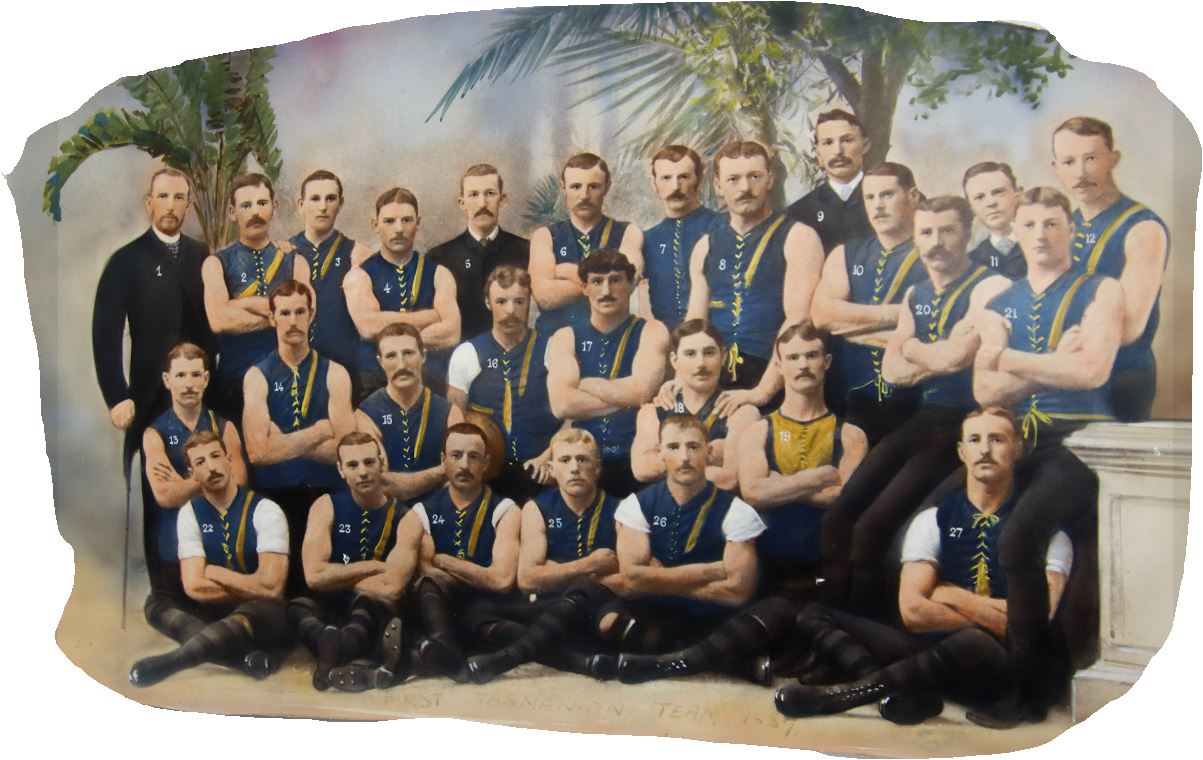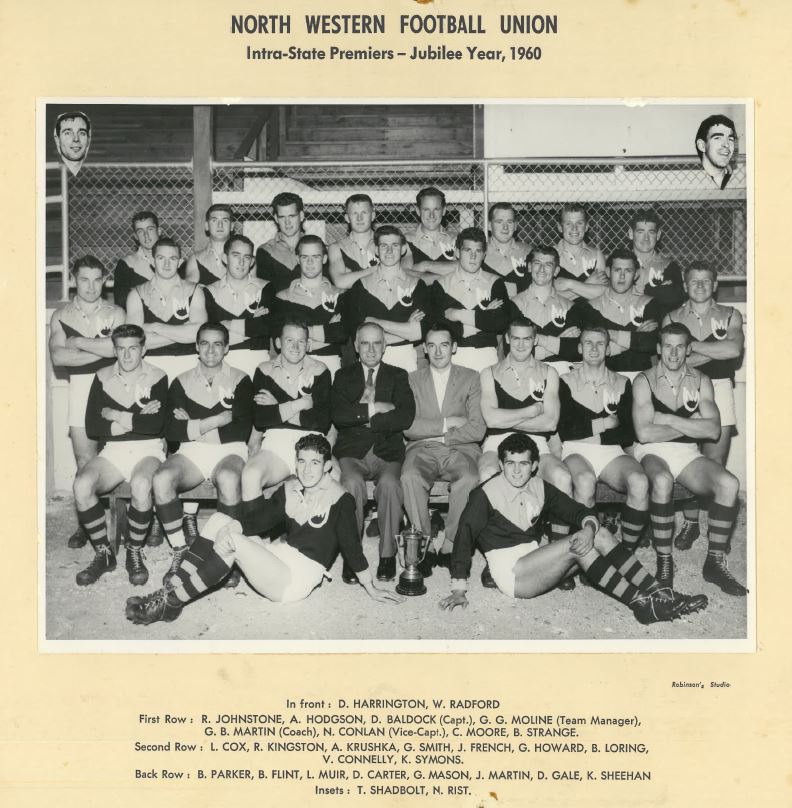With the approach of the 1879 season the clubs held their annual meetings in April of that year. First to do so was City which decided at its meeting to adopt the English set of rules. When Railway held its meeting it adopted the Victorian rules. To make matters more complicated the New Town club decided to adopt a section from each set of rules.
When these clubs met there were many disagreements and it was decided to form an association in Hobart in an effort to restore harmony.
On the 1st May 1879 members of the Tasmanian Cricket Association of Southern Tasmania met and decided to form a football club for their members. They agreed to call the club Cricketers. Hobart now had four senior football clubs together with teams from the Hutchins and High Schools who started junior football in Hobart. There were also the two country clubs Richmond and Oatlands both of which were strong sides in the early days.
The ‘Mercury’ newspaper also formed a club in 1879, which competed against junior clubs.
The season began on May 24 with matches between New Town and Cricketers and High School playing Railway. During these matches and those played on May 31 there were disputes and arguments over the rules and as a result the club secretaries called meetings to elect club delegates for a meeting to form an association to settle the disputes once and for all and to decide on a set of rules that would meet the approval of all concerned.
The meeting which took place at the High School on June 12 not only settled the rules dispute but formed the first association for football in this state. ( A Century of Tasmanian Football 1879 – 1979)
Article : The Mercury – Monday 16th June 1879
The Football Association held their first meeting on Thursday evening last (12th June). The delegates assembled at the High School. The following were present: Mr H Chapman (Cricketers) occupying the chair, Messers: W Ross (Richmond), E C Wright (New Town), W H Cundy (Railway), W A Finlay (City), L Y Prior (High School) F Wheen (Hutchins). As we stated on Friday morning, and as was first generally understood, the Victorian Code of Rules were adopted with certain modifications.
These modifications were understood to be the prohibition of slinging and pushing alterations which were accepted with satisfaction, even by the old Victorians. Later on, however, dissatisfaction became as general as the opposite feeling had previously been, when it oozed out that the first rule as adopted by a majority of the delegates, terminated with the words : To these (goal) posts shall be attached a horizontal bar, 10ft from the ground over which the ball must be kicked to secure a goal” – words which make the so-called adoption of the Victorian code a mockery and a delusion, the innovation being of so glaring a character as to entirely change the form of the play and to rob it of its principal points of interest.
The post of goal-keeper to which one of the coolest and steadiest, was ever appointed and which has been an object of aspiration as a lace of trust, is at once swept away while the occupation of goal-sneak – the quickest, sturdiest and most alert of the forward players – is also gone. The changes consequent on the adoption of this single excrescence from the Rugby Union code are, however too numerous for noting in detail and are such as to have raised at the commencement of the Associations career, a distrust of its wisdom, impartiality and desire to sink individual crotchets for the benefit of the whole that will matter for regret to all who like ourselves have advocated its formation, expecting great good thereby to the winter pastime.
The action is all the more strange as four of the clubs represented are so far as the majority of their members go, advocates of the Victorian code in its entirety. Messers Cundy, Finlay and W Ross are personally staunch advocates of the code and the New Town representative Mr. E C Wright was elected as the delegate to represent the club at the conference for forming as association and he was recommended to urge the adoption of the Victorian rules with certain modifications.
Here are four votes out of seven and yet the objectionable nugatory clause is adopted. The Star Chamber kind of procedure adopted by the delegates is also to be deprecated. No information of any kind has been sent officially for publication and we are indebted to a delegate (not the secretary) for such information as we possess. To be popular the proceedings must be open. The trust is an important one, and therefore the greatest possible publicity should have been given to gain a hearty acceptance. Open voting should have been adopted in accordance with the recognized principles of an elected constitutional and responsible government everywhere, the desire being it must be presumed, the benefit of the greatest number and not the few.
In conclusion it is worth pointing out that though the proper definition of slinging is as follows – “Slinging is the act of catching a player by or round the neck and throwing him to the ground” the Association, in adopting the definition, leave out the words we have italicized. Surely the elision is not necessary.
Read more
This was the build-up to the formation of an association in Hobart which was to become the oldest football body in this state, although the Northern Tasmanian Football Association formed in 1886 is the oldest body still bearing its original name.







